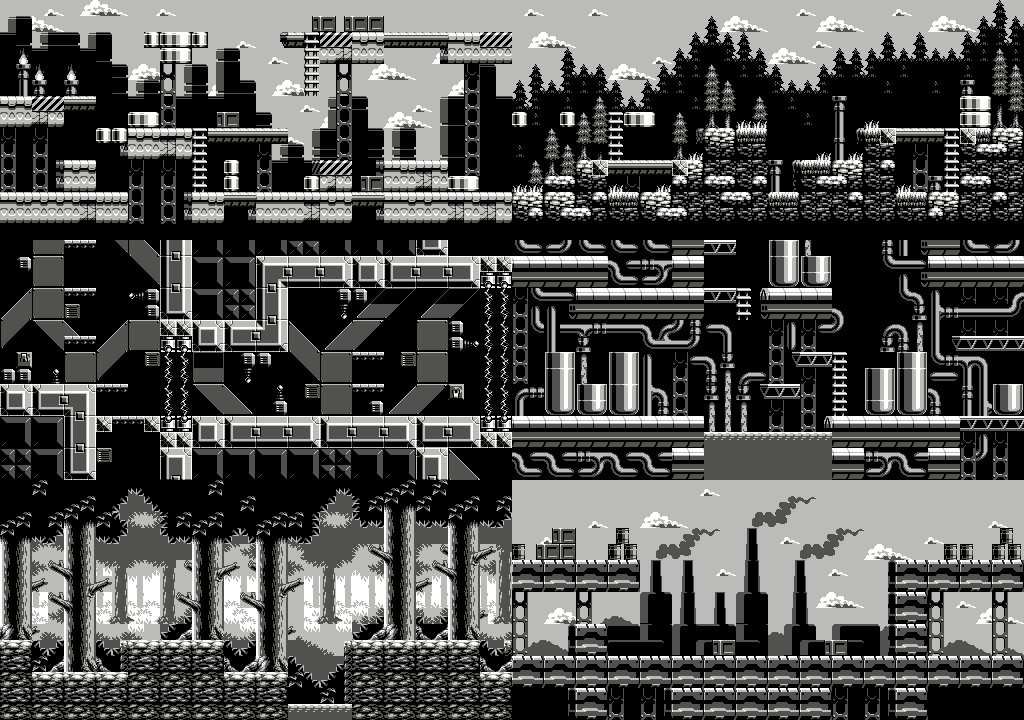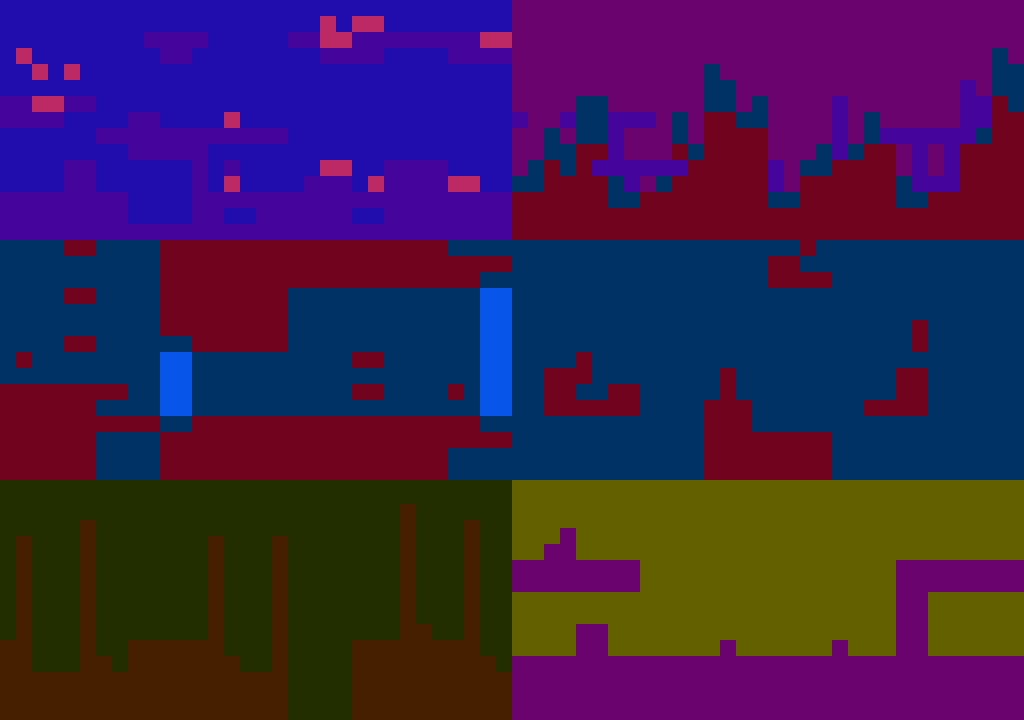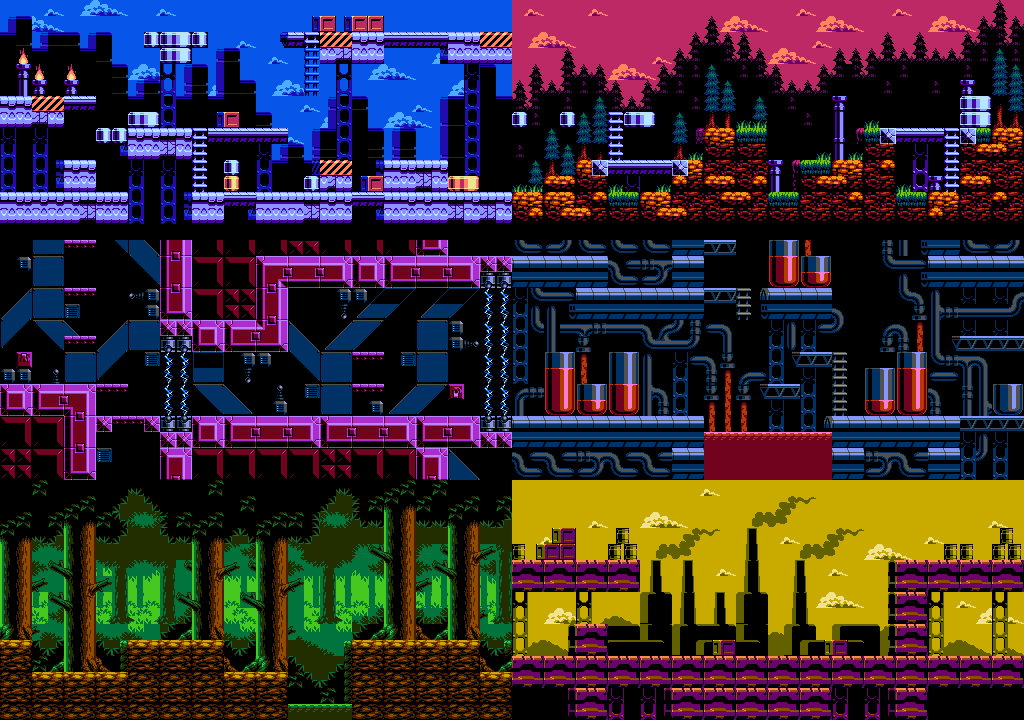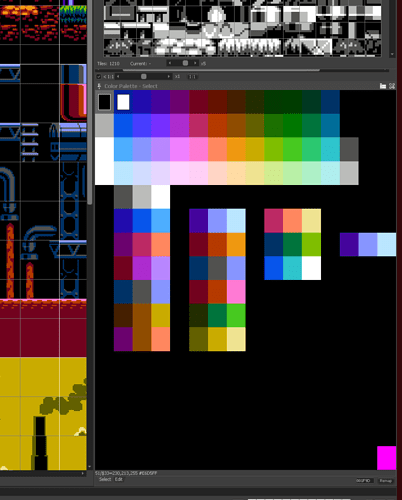We have a layer with all tiles following a specific color set of x amount of colors, but “oh look I don’t want to have to clone tiles with another palette if I can help it!”, or you have a strict necessity to keep to a specific amount of colors but you also want to see colorswapped versions of those tiles, like some sort of binary exporter or something.
This is where I think that TILE-specific color swapping may come in handy. You have a set palette on a tilemap layer set in the create/edit layer screen, maybe as an advanced feature alongside the base index with a note saying “hey, you will probably want to create a color swap layer somewhere above this one” (it could be separate from the palette embedded in the sprite, and it could use grayscale colors/user specified colors or something, Idunno) and that color layer could alter the colors on the tile graphics layer without creating additional tiles.
The “tilemap color index swap” layer could have individual tiles of its own, where three buttons could reside: add, remove and edit. This tilemap could be animated if the user wanted as well (if users wanted specific tiles to change color palettes without adding colors to the next), and/or it could tie into the planned built-in per-frame palette cycling feature to create animated tiles without using up too many additional tiles.
The color swap layer wouldn’t need to do math specifically, it would be more of a simple “hey, these colors are actually these, so let’s display my tile’s colors over the child layer’s graphics”, though it might not be able to change the colors of every other layer. I can understand if it might be a bit too clunky for others, but I think it might be able to work very nicely this way. The color swap layer could have a layer select dropdown for selecting a specific layer to colorize too.
Sorry if this might be too long and too clunky to implement, but it’s something I think could prove useful in some fashion or another, especially for artists who’d like to limit themselves without worrying of going past those limitations. For example, it could be used as a tool to let one see GB Studio color/tile combinations easily then export to a compatible type, or create mockups of Master System or Mega Drive/Genesis games.
tl;dr: graphics tilemap (what we currently have) with user-specified colors which is child of color swap tilemap, so no need for color-swap tiles on graphics tilemap layer
Also, sorry if this sounds like a really dumb idea, I think it could make things easier for the artist though
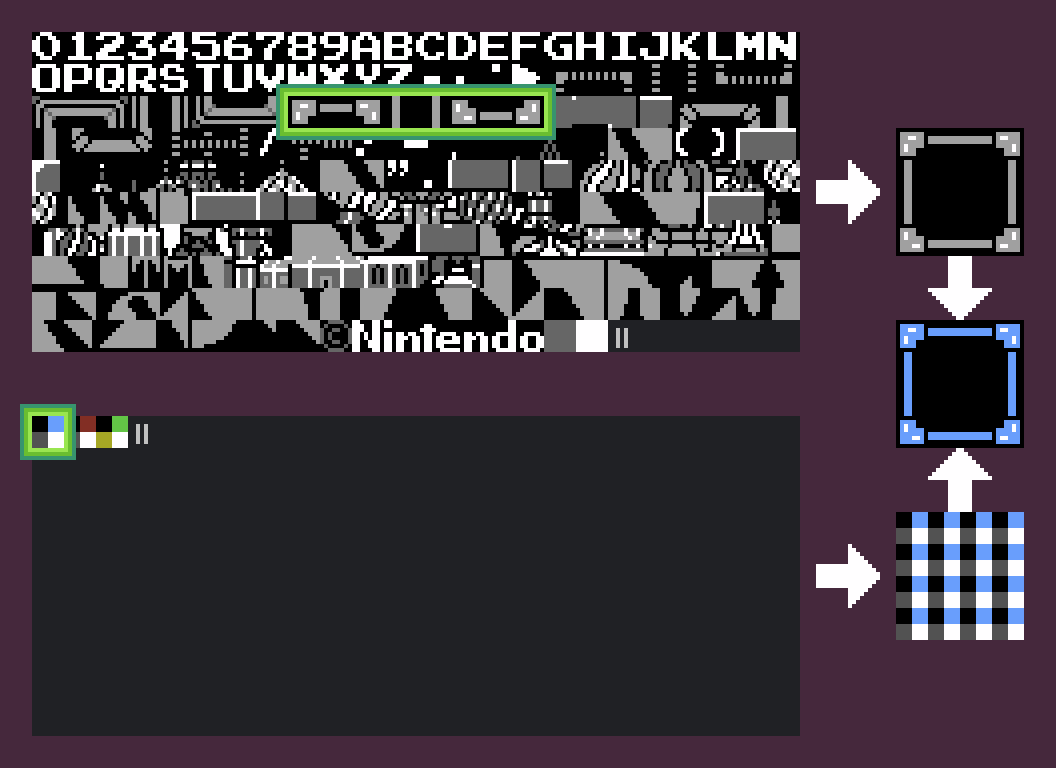
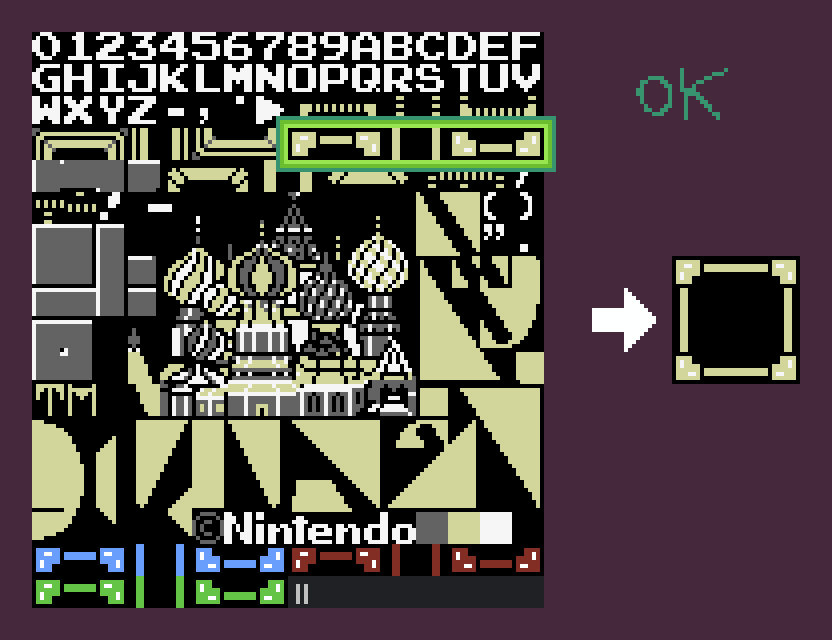
 We have plans to add a “palette shifting” feature in the original
We have plans to add a “palette shifting” feature in the original 